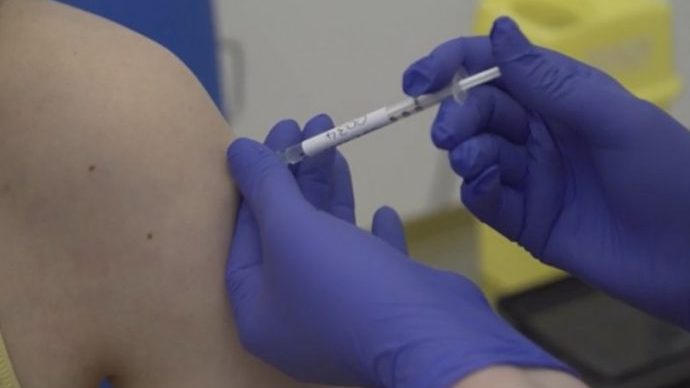A human vaccine trial begun last week in England has raised hopes that the COVID-19 coronavirus might one day be stopped in its tracks.
However, ethicists have expressed concerns that the vaccine, developed at Oxford University, used cell lines obtained from an aborted child in the early 1970s.
Cell lines are often used in medical research and are cells that continue multiplying indefinitely from a tissue sample.
Two such cell lines, the HEK 293 used at Oxford, and the PER C6 cell line from the 1980s, originate in tissue from an aborted child.
Two major Catholic bioethics centers have recently published briefing papers on the issue in light of the push to develop a COVID-19 vaccine.
“Simply as a matter of fact, use of such cell-lines in COVID-19 vaccine production is likely to create problems of conscience for some of those to whom the vaccine is offered, and who become aware of its history … Conscientious objection on the part of potential vaccine recipients creates its own ethical demands for decision-makers, including those who do not themselves share the objection in question. Such concerns should be viewed with particular sympathy in the area of abortion, bearing in mind that even those who do not object to all abortions may well object to the particular abortion from which a fetal cell line was derived,” said the document from the Oxford-based Anscombe Bioethics Centre.
Dr Helen Watt is Senior Research Fellow at the Anscombe Bioethics Centre, and the author of the report. She told Crux that despite the early testing of the Oxford vaccine, it won’t necessarily be one that goes into general use.
“It’s very possible that the first and perhaps the only COVID-19 vaccine produced will be a cell-free or other morally uncontentious vaccine. That would be an enormous relief to those wishing to avoid a link with even a historic abortion,” she said.
Joseph Meaney, the president of the Philadelphia-based National Catholic Bioethics Center (NCBC), told Crux that Catholics “should insist on ethical scientific research that has no links to abortion or the killing of embryos.”
According to the NCBC briefing paper the use of the cell lines obtained from aborted fetuses, even for the purpose of a COVID-19 vaccine, “is a cause of serious theological scandal.”
“Appealing to good aims and an ‘urgent need’ will foster the deeper penetration of unethical research and development into medicine, politics, law, and culture,” the paper said.
Both the Anscombe Bioethics Centre and the NCBC appeal to a 2008 Vatican document, Dignitas Personae.
The document states there is “a duty to refuse to use” illicitly obtained biological material by researchers, “even when there is no close connection between the researcher and the actions of those who performed … the abortion.”
However, Dignitas Personae does say that “differing degrees of responsibility,” and that a person could ethically use a vaccine developed with two problematic cell lines for “grave reasons.”
Certainly, stopping the COVID-19 pandemic could be viewed as such a reason.
“”Accepting vaccines produced in morally contentious ways is a matter of conscience that Catholics must decide for themselves in the light of Church teaching such as Dignitas Personae,” Watt told Crux.
Risks to self and others of forgoing the vaccine in one’s own case must be given serious weight. Those with vulnerable people in their care, for example, will have a particularly strong reason to be vaccinated,” she continued.
Meaney said that “if such an ethically tainted vaccine was the only one available, using it without any acceptance of the illicit means used to develop it would be a form of remote material cooperation,” using a phrase from moral theology meaning a person does not intend nor directly help with an immoral action, even if they are “remotely” involved in the act.
“This can be justified for a serious reason and if the person’s well-formed conscience permits them to do so,” he told Crux.
Both the Anscombe Bioethics Center and the NCBC say that if two vaccines are developed, and one is from the fetus cell lines, and the other is not, it is a moral imperative to try and choose the one not connected to an abortion.
However, they also say people should not be faced with such a choice.
“Governments should seek to fund research on, and purchase, morally uncontentious vaccines, both to reward morally uncontentious research and to provide more citizens with vaccines they can in conscience accept, even with full background information. Internationally, it is very much to be hoped that morally uncontentious vaccines will be made widely available to all peoples of the world, both to fight the COVID-19 pandemic and to combat other threats to life and health,” Watt writes in her paper.
Meaney points out that there are other methods for developing vaccines and says the main reason for using these ethically tainted cell lines “is convenience.”
“They exist and their properties are well known. They are in no way indispensable to the process as shown by the fact that many companies do not use them and develop good vaccines,” he told Crux.

